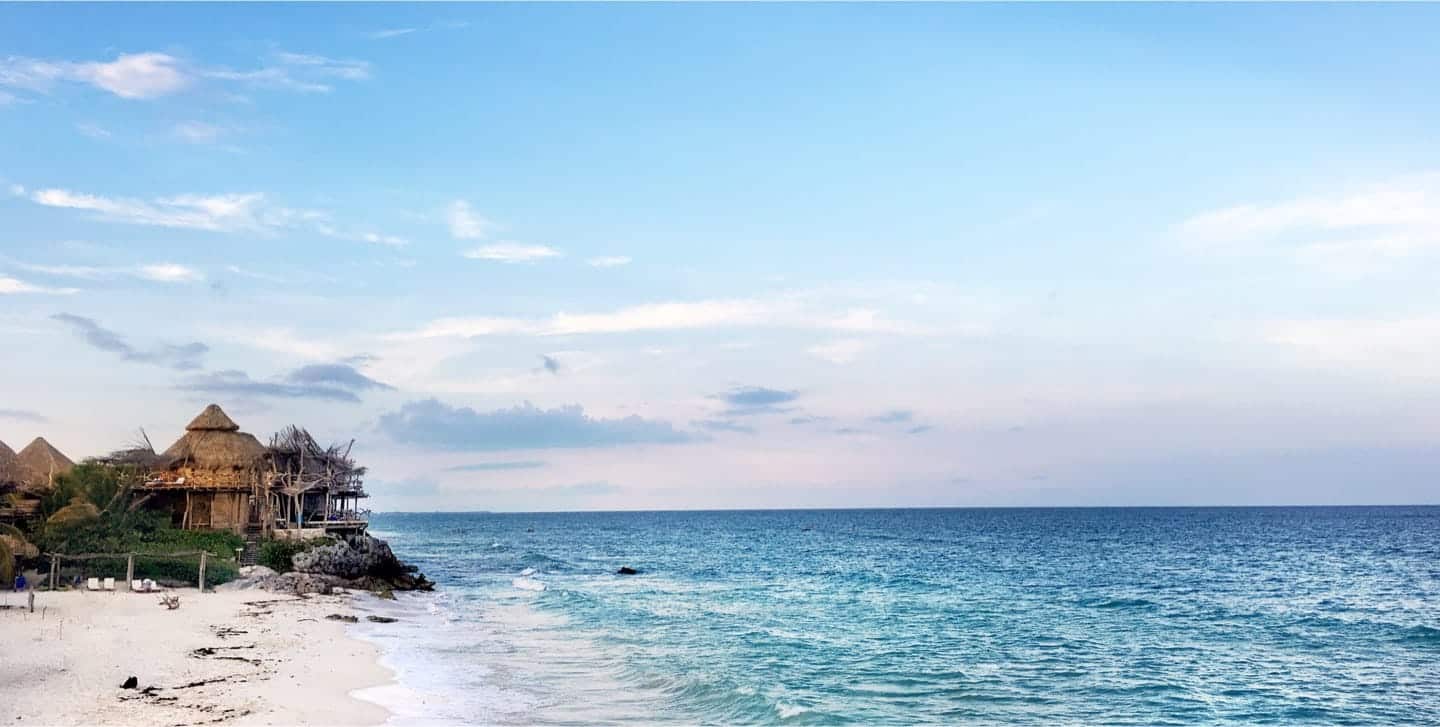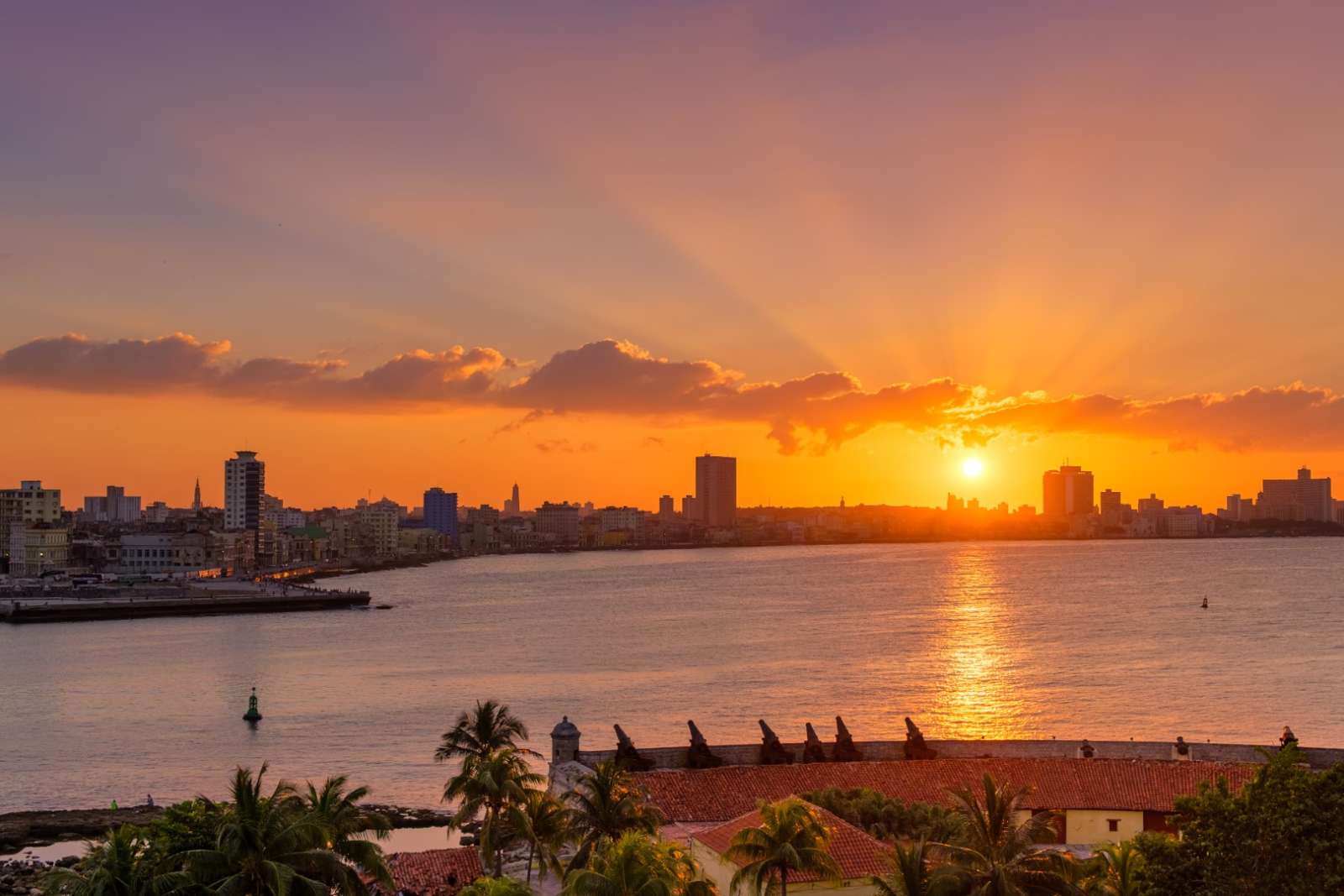Cuba / When To Visit
When is the best time to visit Cuba?

The best time to visit Cuba is November through April
Cuba is a genuine year-round holiday destination although, invariably, certain times of year are more favourable to travel than others.
As with the rest of the Caribbean, Cuba’s high season runs from the start of November to the end of April. During these winter months, the weather tends to be drier, cooler and less humid than the hotter, wetter, more humid summer months which run from May through October.
However, it’s important to stress that the weather in Cuba is anything but predictable with rain showers not uncommon during the dry season and long, dry spells no great surprise during the wet season.
|
|
|
 |
Beyond The Ordinary arrange fully bonded, tailor made holidays and tours to Cuba. Contact one of our experts on 01580 764796, email travel@beyondtheordinary.co.uk or contact us via our website. |
|
|
|
Deciding on when to visit Cuba will also depend on one’s reasons for visiting the island. Due to the cooler temperatures during the winter months, this is much the most popular time of year to ‘tour’ the island.
For clients looking to extend their stay with time at the beach, there is no wrong time to do this although, occasionally, it can get slightly too cool in December & January while you are more likely to experience grey sky and rain showers during the summer months (generally in the afternoon).
In terms of variations across the country, yes, some parts of the island do experience more rain or higher temperatures. However, these variations are relatively minor and should not influence your travel plans in any way.
However, one meteorological consideration that many visitors perhaps should take into account is variations in daylight. As Cuba is in the northern hemisphere, the weather might be ‘better’ during the winter months but you’ll experience longer days (up to 2 hours) during the summer months.
A final, and no less important consideration, relates to crowds and pricing. As with pretty much anywhere one travels, high season means bigger crowds and higher prices with hotel rates in the high season often being double those for travel in May, June, September & October.
Due to higher demand, and a scarcity of accommodation, clients looking to travel during the high season (and especially Christmas, New Year & Easter) should book as far in advance as possible.
When to visit Cuba
-
January
0°C -
February
0°C -
March
0°C -
April
0°C -
May
0°C -
June
0°C -
July
0°C -
August
0°C -
September
0°C -
October
0°C -
November
0°C -
December
0°C
Month by Month
-
January
January is one of the coolest months of the year in which to visit Cuba and is ideally suited to touring holidays, especially where any prolonged walking is involved. Beach extensions are still very much an option although, on occasion, it can get a little too cool.
-
February
The temperatures begin to gradually rise and the weather become more settled as Cuba enters the busiest time of the year. Apart from the growing crowds and high hotel rates, this is a great time of year to visit the island.
-
March
March is almost identical to February but, if anything, even better with a near perfect combination of warm days and comfortable evenings, not to mention extended daylight hours. Our favourite month to visit Cuba.
-
April
Temperatures continue to rise but are still very comfortable and, yes, daylight hours extend still further into the early evening. Depending on annual variations, flight and hotel rates rise sharply over the Easter holidays.
-
May
Although May is the first month of the Cuban summer, it’s still one of the best months in which to visit. The weather is hot but not uncomfortable, rainfall and humidity generally aren’t yet an issue, the days are longer, crowds smaller and hotel rates drop significantly.
-
June
As the summer begins to take hold, the weather gets gradually hotter and rainfall becomes more and more likely. However, visitor numbers are relatively low and daylight hours are at their peak.
-
July
Temperatures in Cuba reach their peak in July & August and humidity levels are also high. Despite this, and because of the school holidays, air fares tend to be high and hotel rates also rise. Families and teachers aside, these are two months you might want to avoid.
-
August
Temperatures in Cuba reach their peak in July & August and humidity levels are also high. Despite this, and because of the school holidays, air fares tend to be high and hotel rates also rise. Families and teachers aside, these are two months you might want to avoid.
-
September
The weather remains hot and humid and, if there is to be a hurricane, this is statistically the most likely month of the year for it to happen. However, you’d be very unlucky to be caught up in one and, for most visitors, afternoon showers are the most likely outcome.
-
October
October is still part of the hurricane season, but less so than September as the weather slowly begins to get cooler and drier. Although part of the low season, flight and hotel rates often rise in the last third of the month.
-
November
There is no sudden, overnight change in the weather as Cuba enters its winter / high season but, as the month progresses, temperatures continue to gradually fall. Although there is no seismic change in the weather, many hotel rates jump from 1st November.
-
December
Together with January, December is the coolest time of year to in which to visit Cuba and ideal for exploring the island. For the first half of the month things are generally quite calm before, in the build-up to Christmas and New Year, both airline and hotel rates reach their peak.
You’re in safe hands
When making your travel arrangements, we understand just how important peace-of-mind is. Beyond The Ordinary hold both ATOL & ABTOT bonds so whether you book your flights through us, or independently, any money you pay us is 100% protected. More detailed information on Financial Protection can be found by clicking here.

Make your next holiday Beyond The Ordinary
Whichever of our featured countries you wish to visit, we've been there several times. So, if you're after something beyond the ordinary to Cuba, Guatemala or the Yucatan Peninsula of Mexico, we'd love to hear from you.
Plan my Extraordinary

